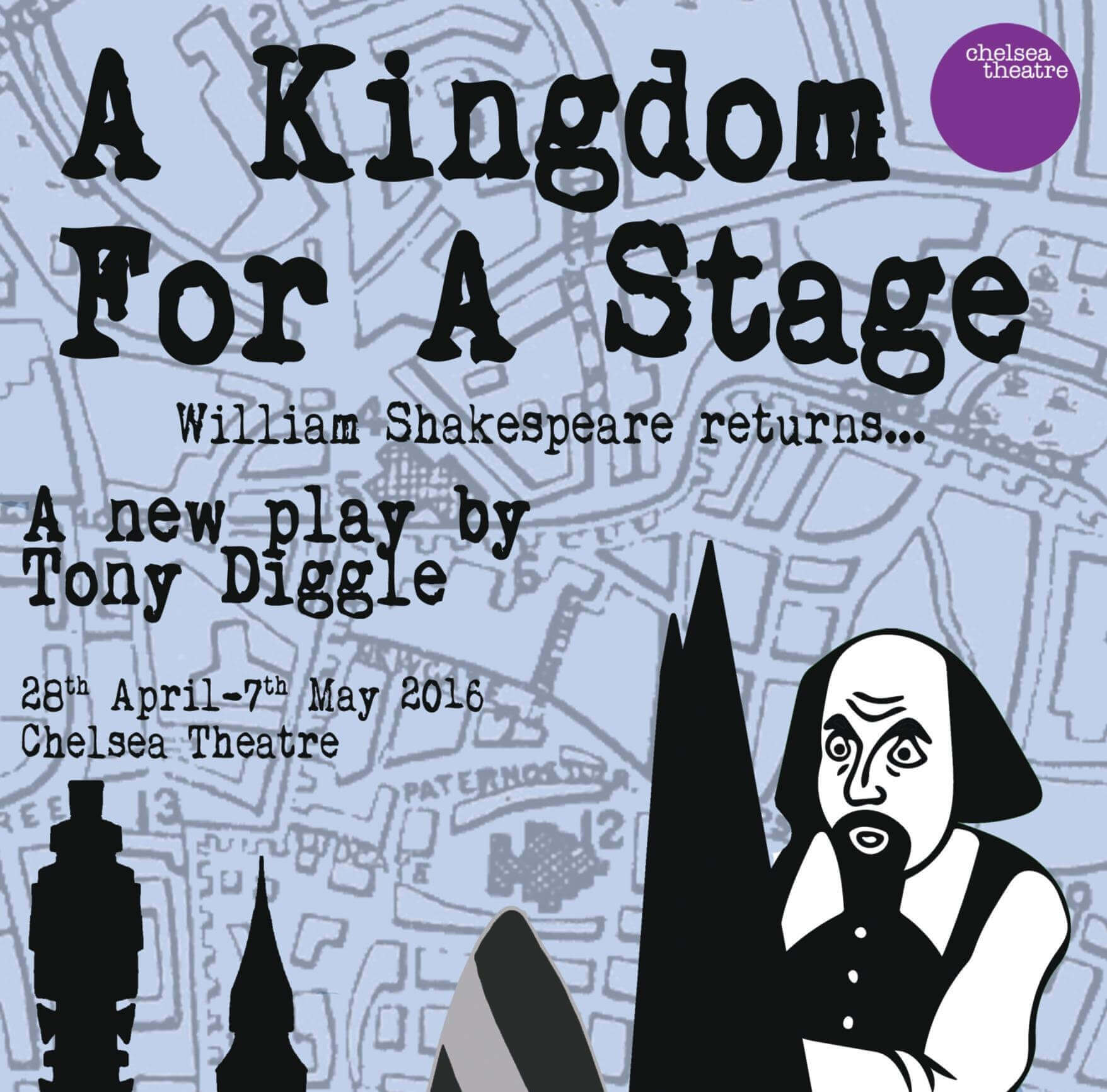In A Kingdom for a Stage, an ambitious new play penned by Tony Diggle to celebrate 400 years since Shakespeare’s death, the Bard finds himself in modern-day London. Although he’s dreamed of returning to earth since the new Globe was built, Shakespeare (Jonathan Coote) is bewildered by the smog, the Shard and the City’s busy bankers. With the help of his trusty blue-haired spirit Puck (Sue Appleby) he rushes back to the safety of the heavens, but not before getting inspiration for his “38th play” – a terrible skewering of the financial crisis that George Bernard Shaw (Richard Ward) loudly critiques. It’s driven by a great concept, with flashes of hilarity including a brilliant Phil Mitchell-esque angel (Christopher Knott) and Shaw dismissing the current Shakespeare’s Globe as “an Elizabethan fossil full of tourists”. But ultimately A Kingdom for a Stage, to quote Macbeth, falls victim to its “Vaulting ambition, which o’erleaps itself, And falls on th’other”.
The main issue is that it just attempts too much. Not content with whisking William Shakespeare off to 2016 London, or having him rattling around Heaven bickering in post-mortem perpetuity with Ben Jonson (Alex Murphy), Christopher Marlowe (Edwin Wright) and Shaw, Diggle also introduces a Faustian pact sub-plot and sends our hero back to visit his past, Christmas Carol style. There we see a young Shakespeare torn between his family in Stratford and his profession in London and, later, a dying Shakespeare negotiating family issues and writing his will.
Although the programme contains a disclaimer – “the scenes depicting aspects of Shakespeare’s life are not history” – Diggle crams as many historical facts into A Kingdom for a Stage as possible. We don’t know much about Shakespeare and what we do know (his father’s municipal responsibilities and financial problems, Anne Hathaway’s pre-marital pregnancy, Shakespeare’s grain hoarding) mostly comes from legal documents. These facts, while perhaps intriguing to read, don’t make for exhilarating drama and scenes such as an exchange between John Shakespeare (Philip Anthony) and his daughter-in-law Anne (Juliet Vaughan Turner) prove that what we don’t know about Shakespeare’s life is far more interesting than the little we do. John prattles on at length, dropping names, dates and situations plucked from the records of Stratford-upon-Avon, but it’s the deep emotion felt by Anne that we’re really interested in. Diggle’s play is far more engaging when it speculates; the research that’s gone into A Kingdom for a Stage is impressive but dry and the running time could easily have been pared down to a clear, concise ninety minutes without most of it. What’s more, Shakespeare’s Complete Works are ceaselessly quoted in ways that are often fitting but frequently lengthy, awkward and a bit forced. The writing demonstrates a great knowledge and admiration of Shakespeare but the overall effect is overwhelming.
For all its faults, however, A Kingdom for a Stage really comes into its own in the last few scenes. Marlowe hijacks Shakespeare’s play, forcing the Bard to take a long, hard look at his own transgressions with tabloids emblazoned with Dark Lady speculation and another Warwickshire flashback. There’s a lovely scene between Shakespeare and his daughter Susanna (Kirsten Shaw) that manages to be touching despite spending too much time reeling off their family tree and picking over details from the will. The final ode to Anne Hathaway is beautiful. Juliet Vaughan Turner’s performance is the most nuanced of the night, taking full advantage of the back story Diggle elaborates, and adding a great deal of heart to the woman popularly known as the forgotten wife with the second best bed.
The cast is brilliant and the concept original but the play, unsure if it’s a comedy about an ageing, time-travelling poet or the tragic biography of a man who abandoned his family for fame and fortune, feels more like a promising first draft than a finished piece. With more feeling and fewer facts, A Kingdom for a Stage could be a great exploration of what it means to remember Shakespeare, both the man and the legend, in this anniversary year, and what he might think of the modern world making such a fuss about his death.

